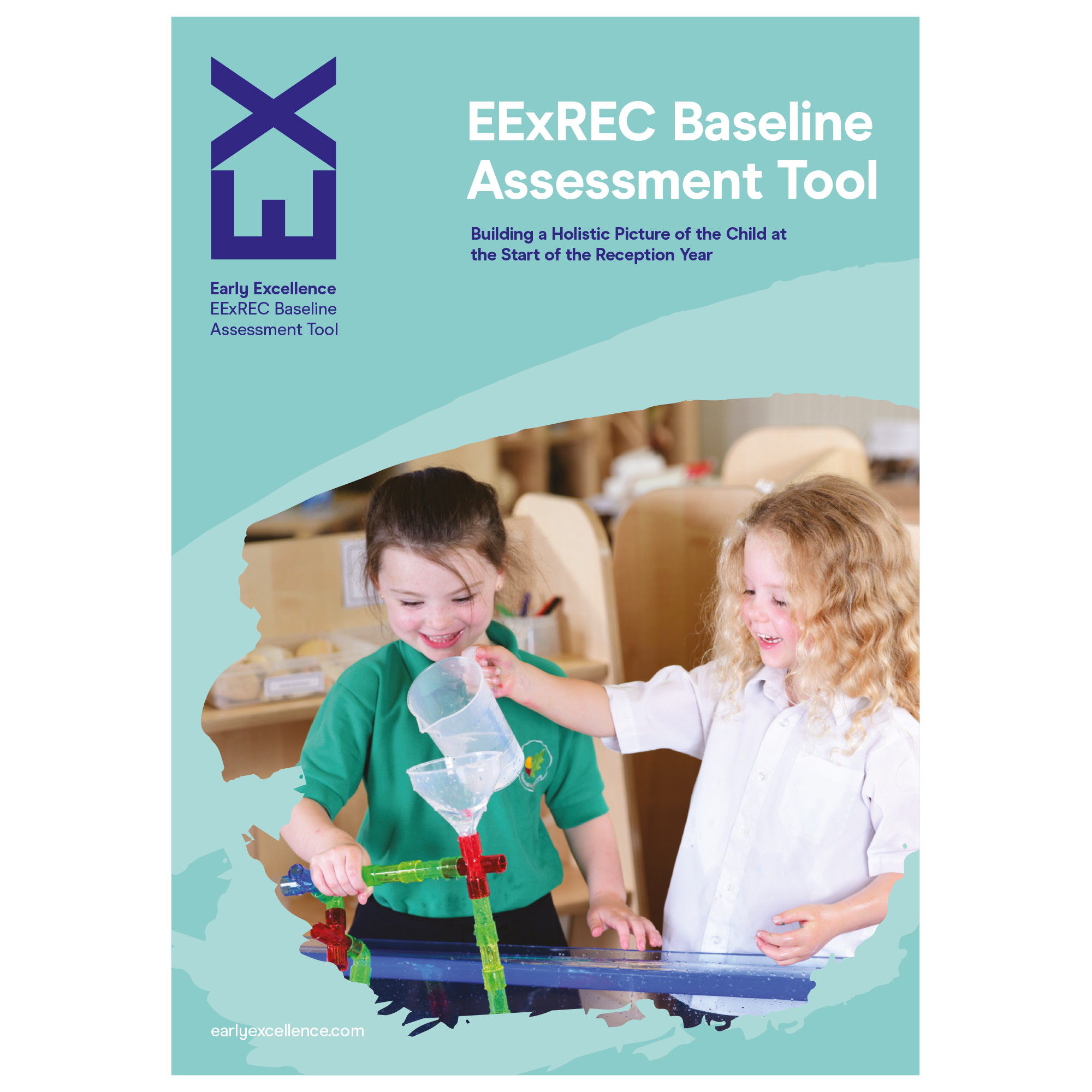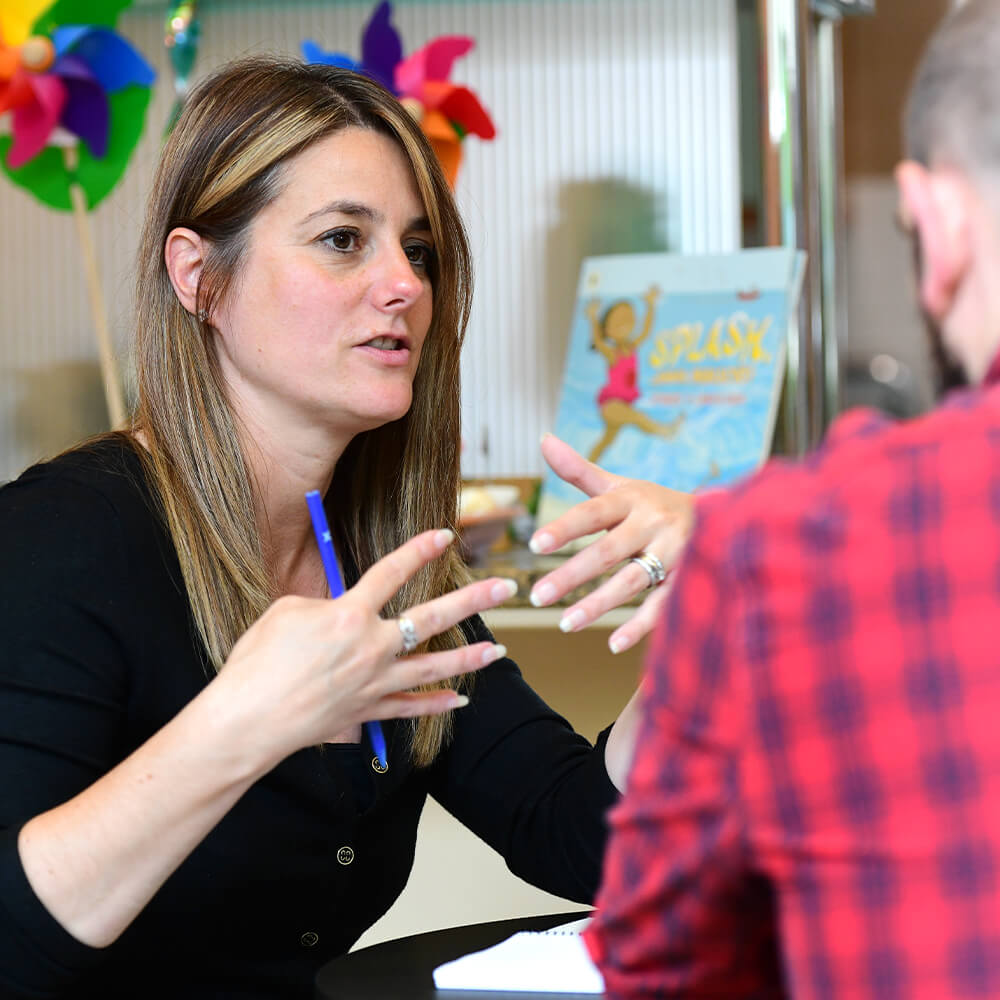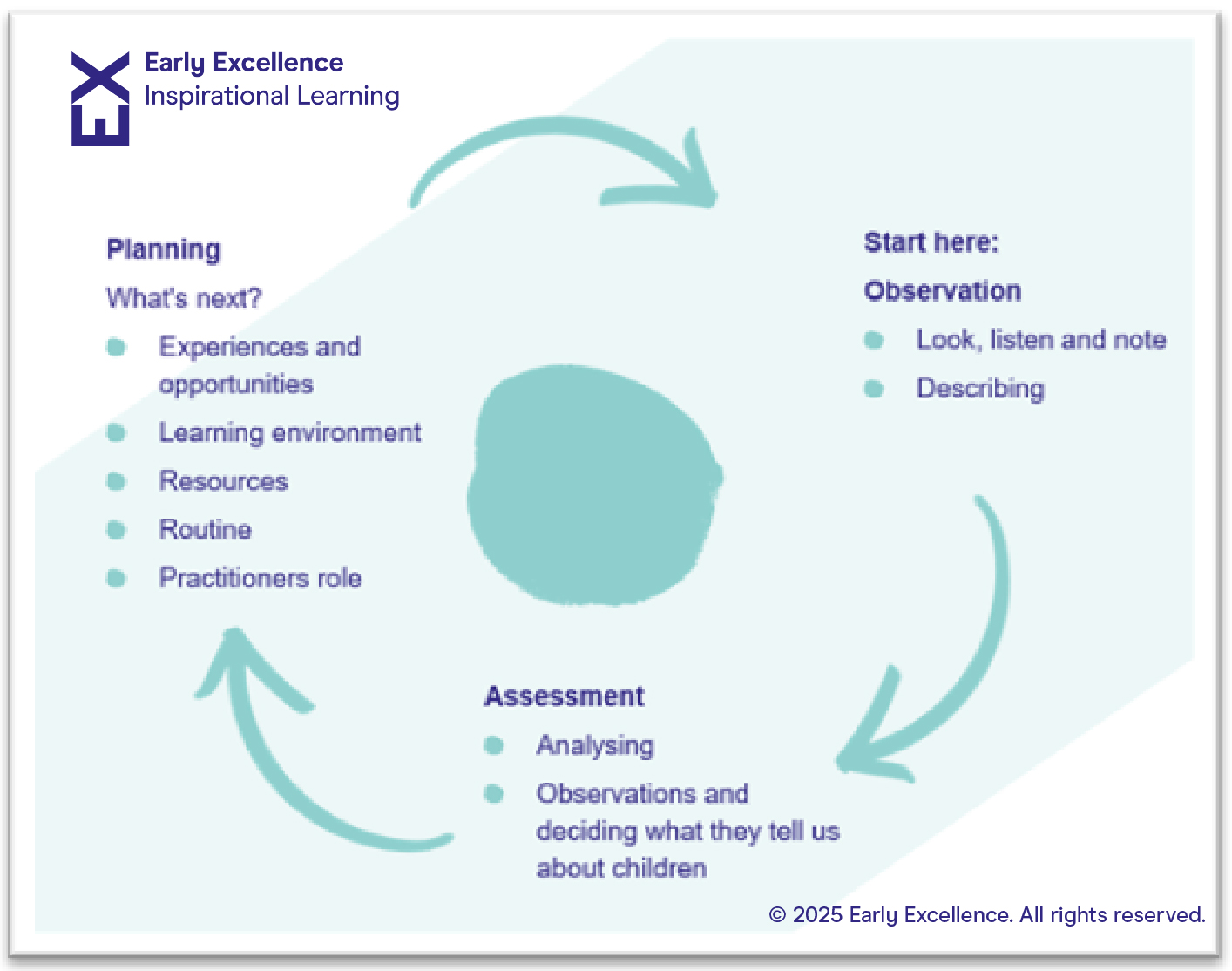Baseline assessment and other assessment processes within the Early Years Foundation Stage (EYFS) can, if we’re not careful, feel like a bit of a minefield. As with many things, the extremes are to be avoided. At one end of the spectrum, too many recorded observations can leave us swamped by information that may not be useful; at the other, minimal observation won’t enable us to convey the complexities and subtle nuances of children’s development. So, where do we start? If you are looking to improve the processes for effective assessment within your setting – including how you approach baseline assessment – there are some key questions to consider.
What Information Is Useful?
For assessment to be meaningful and effective, all staff must have a shared understanding of what constitutes useful information. The EYFS Statutory Framework reinforces that assessment should not entail prolonged breaks from interaction with children. Instead, effective assessment is embedded in day-to-day practice, through regular meaningful interactions.
To build a holistic picture of each child, practitioners need to observe not just skills and knowledge in the Prime and Specific areas of learning, but also need to consider children’s wellbeing, levels of involvement, and the characteristics of effective teaching and learning. Understanding what motivates each child, how they approach learning, and the contexts in which they thrive remains central. This detail is vital in conveying the overall picture of a child’s developmental and learning journey.
Crucially, relationships with parents and carers must continue to be prioritised, as their insights form an integral part of this picture. What a child does in setting vs. at home can be very different in some instances, especially where a child may have a specific educational or developmental need or perhaps were a child’s speaks in home language at home. By speaking to parents, you’ll strengthen your assessment and overall picture of the child. You can find more information about the crucial role of parental engagement in our blog The Best Start In Life: Encouraging Talk in the Home Environment.
How Will We Find Out This Information?
Assessment should primarily be based on what practitioners know about the child from their own professional knowledge and observations, as clarified in both the EYFS Statutory Framework and the EYFS Profile Handbook. This means staff must engage with children in varied contexts, responding sensitively to their learning, and observing children with purpose.
It’s important to clarify again: not everything needs to be written down. The EYFS Statutory Framework is clear that excessive evidence collection is discouraged. Instead, what matters is a strong grasp of child development, informed by training, professional discussions, and ongoing moderation among staff.
A well-trained team that understands developmental milestones, and the typical progression towards these, will be far more effective in making accurate and consistent judgements. Utilising non-statutory documents such as Development Matters can support staff in their child development knowledge, however, these documents should not be used as an assessment tick-list. They are a useful tool for supporting understanding of typical developmental milestones.
How Will We Use This Information?
Observational assessment should be the start of a cycle, not the end. The cycle – observe, assess, plan – remains central.
Following observations, staff should reflect on and discuss what they’ve seen, and use these insights to inform next steps: planning environments, adult interactions, and additional support if needed.
A particularly vital moment in this cycle is the baseline assessment when a child first starts in a setting or school. Establishing a baseline provides practitioners with a clear picture of where a child is developmentally at the point of entry. This isn’t about testing or labelling – it’s about understanding each child’s starting point to ensure they are supported effectively from the beginning.
The EYFS Statutory Framework and the EYFS Profile Handbook both emphasise the need to identify children who are not yet meeting typical milestones, and baseline assessment is an essential part of this. Practitioners can use this initial information to tailor the learning environment, their interactions, and the experiences the provide to meet the unique needs of each child.
Importantly, this baseline should be informed by a combination of professional observation, parental insights, and any prior information from other providers, rather than a reliance on standardised data sets. It sets the tone for building a relationship-based, developmentally informed approach to planning and intervention.
To support children’s progress and development effectively, the staff team will need a clear understanding, not just of the developmental stages shown in non-statutory tools such as Development Matters, but of each incremental step towards these milestones and what they might look like in practice. Building the team’s understanding of child development in order to achieve accurate assessment is crucial. As Cathy Nutbrown puts it:
“It is easy to only observe what we want to see and assess only what we understand.”
This reinforces the need for reflective practice and continual dialogue within teams.
Does the Information Help Us to Shape Practice, Show Progress, and Identify Needs?
Collecting and using assessment information strategically is essential. Leaders need to see the bigger picture – identifying patterns in progress across cohorts or groups, particularly in areas such as communication and language, personal, social and emotional development, or mathematics.
The EYFS Statutory Framework emphasises the importance of using assessment to help children make progress, not to label or track unnecessarily. The expectation is for formative assessment to remain light-touch but insightful – supporting the identification of children at risk of not meeting developmental milestones and enabling timely intervention and support.
Understanding age-related development remains a vital part of this process. It helps practitioners differentiate between what is developmentally appropriate and where targeted support is required.
Final Thoughts
There’s a lot to consider – not just about observational assessment, but about how we engage with the knowledge practitioners develop through relationships with children and families.
So, ask yourself:
- Do your assessment processes help you build a truly holistic picture of each child as a young learner?
- Are your systems manageable, meaningful, and rooted in professional judgement?
- Is assessment in your setting a living, responsive process that informs planning and promotes progress?
If the answer isn’t a resounding “yes,” it may be time to review, refocus and reconnect with the purpose of assessment in early years.

Discover the EExREC Baseline Assessment Tool to create an accurate picture of children’s start points and gather meaningful information to inform practice, provision and individual next steps.

Reflect on the strengths and areas for development in your end of EYFS Moderation Practices with our free School Leader Reflection Tool.

Explore our Strengthening Adult Interactions in the EYFC Course to support practitioners with child development knowledge and in strengthening their interactions with children.


